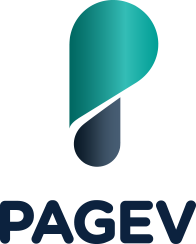END OF HOSTILITIES IN SYRIA WILL BOOST PLASTIC EXPORTS
Institutional issues with the plastics industry in Turkey, such as 85% import dependency, high energy costs, bureaucratic difficulties and additional burden made their mark in 2016 as well. Meanwhile, political and economic problems, the recession in the European economy, and the instability surrounding the Middle East posed further difficulties for the sector. In spite of all this, the Turkish plastics industry managed to achieve growth and is expected to end the year with 9 million tons of production and 5 billion dollars in exports including finished products and raw materials. PAGEV Chairman Yavuz Eroğlu said that the sector had a growth potential between 5.5% and 7.4% in 2017, while the downturn in the global economy and problems in Turkey's key export markets may limit growth to 4%.
The Turkish plastics industry is behind every convenience from needle to thread, and ranks sixth in the world and second in Europe in terms of production capacity. The industry also provides a boost to the export volumes of Turkey. Estimated production figures for the Turkish plastics industry in 2016 is 9 million tons or 35 billion dollars' worth of plastics, while direct exports of finished goods is expected to exceed 4 billion dollars. Together with plastic raw material exports, the total export value is above 5 billion dollars. In addition to direct exports, the plastics industry has a large volume of indirect exports through other exporting industries like automotive, consumer durables and electronics. Although the sector has a growth potential between 5.5% and 7.4% in 2017, the downturn in the global economy and problems in Turkey's key export markets may limit growth to 4%.
Explaining that economic and political instability in 2016 caused difficulties to the plastics industry, Turkish Plastics Foundation (PAGEV) Chairman Yavuz Eroğlu said, “Our business was adversely affected by problems around the world, shrinking global trade volumes, decline in commodity prices, and the hostilities in our primary export markets. In addition, our competitive strength is being curtailed by 85% import dependency, lack of energy investments, bureaucratic difficulties and additional tax burden and charges. Despite all difficulties, our sector managed to achieve growth in production and exports. We estimate production figures for the Turkish plastics industry in 2016 to be 9 million tons or 35 billion dollars' worth of plastics. Direct exports of finished goods are expected to exceed 4 billion dollars, while raw material exports will be above 900 million dollars. Domestic sales are expected to increase 7% by value as well. For 2017, the sector has a growth potential between 5.5% and 7.4%. However, the downturn in the global economy and problems in Turkey's key export markets may limit growth to 4%."
Sayıing that despite growth forecasts for 2017, political and economic risks around the world could put pressure on the sector, Yavuz Eroğlu continued, “The factors that restricted global economic growth in 2015 and 2016 are expected to continue in 2017 as well. Emerging and developing economies will continue to face challenges, while geopolitical tension may exacerbate the difficulties experienced by the global economy. These local and global issues affect our industry adversely, as they do all industries. Stagnating, even declining sales prices in the plastics industry detract from our competitive ability and cause profit margins to shrink. The main reason that we are deeply affected by these risks is our inability to provide enough added value. To overcome this, we must transform the industry from the production of low-value conventional plastics to advanced plastics. As PAGEV, we took the first step in this direction. We have begun to work on the PAGEV Plastics Center of Excellence in partnership with the Turkish Ministry of Science, Industry and Technology to enable the production of high-technology plastics. Initially, we will raise the export unit price from 2.8 dollars per kilogram to 4 dollars per kilogram. We must also focus on R&D and production development, creating a customer-centric value chain. This calls for a revision of incentives available to the sector. We need solutions to our 85% dependency on imports. We argue that local producers should be protected through incentives that reduce production and investment costs rather than additional taxes on raw material imports. Finally, our companies need to increase their exports to mitigate risks. Of course, ensuring market diversity is also important when increasing exports. We believe that mitigation and ultimately elimination of risks is only possible through diversification into alternative markets. We will continue our endeavors towards these objectives, both as PAGEV, and as the TOBB Plastics, Rubber and Composite Industry Assembly, the official umbrella organization of our industry."
Saying that the rate of recovery in the US and the Euro zone would be the single most important factor to shape the growth of the global and Turkish economies in general and the Turkish plastics industry in particular, PAGEV Chairman Yavuz Eroğlu continued, “We will be closely following the impact of FED's monetary policy decisions on emerging economies, the state of the Chinese economy, and the fluctuation in commodity prices. Meanwhile, domestic demand is expected to be the driving force of growth in the Turkish economy in 2017. Positive developments in 2017 include the effect of domestic demand in spurring growth, low commodity prices, signs of recovery in the EU, and the end of sanctions against Iran. One of the best things that can happen for the industry in 2017 is the hostilities in Syria coming to an end. We will all appreciate this from a human perspective, while the industry will further appreciate the opportunities this will reopen. It is possible for Syria to become Turkey's largest trading partner in plastics if the civil war comes to an end. Stability in the region will help us increase our exports to Iraq as well."

